
Timeless Charm of Charleston's Historic District
Explore Charleston's Historic District: A charming blend of rich history, stunning architecture, and Southern hospitality, perfect for history lovers and cultural enthusiasts.
Nestled in the heart of Charleston, South Carolina, the Historic District is a treasure trove of Southern charm and rich history. This area is renowned for its well-preserved architecture, cobblestone streets, and vibrant culture, offering visitors a unique glimpse into the past. The Historic District is home to some of Charleston's most iconic landmarks, including the Battery, Rainbow Row, and the Charleston City Market, each telling a story of the city's storied past. Strolling through the Historic District, you'll be captivated by the grandeur of antebellum mansions, lush gardens, and quaint alleyways. The district's picturesque setting is perfect for leisurely walks, carriage rides, or even a boat tour along the Cooper River. Don't miss the chance to visit the many museums, galleries, and historic homes that provide a deeper understanding of Charleston's role in American history. Culinary enthusiasts will find themselves in paradise, as the Historic District boasts an array of dining options, from classic Southern fare to innovative culinary delights. The district's lively atmosphere is enhanced by charming boutiques, antique shops, and bustling markets, making it a delightful destination for shopping and exploring. Whether you're a history buff, a foodie, or simply looking to soak in the beauty of the South, Charleston's Historic District promises an unforgettable experience.
Local tips in Historic District
- Wear comfortable shoes as the cobblestone streets can be uneven.
- Visit early in the morning or late in the afternoon to avoid the heat and crowds.
- Take a guided walking tour to learn fascinating stories about the district's history.
- Check out the local events calendar for festivals and special events during your visit.
- Try traditional Southern dishes at local restaurants, like shrimp and grits or she-crab soup.
Timeless Charm of Charleston's Historic District
Nestled in the heart of Charleston, South Carolina, the Historic District is a treasure trove of Southern charm and rich history. This area is renowned for its well-preserved architecture, cobblestone streets, and vibrant culture, offering visitors a unique glimpse into the past. The Historic District is home to some of Charleston's most iconic landmarks, including the Battery, Rainbow Row, and the Charleston City Market, each telling a story of the city's storied past. Strolling through the Historic District, you'll be captivated by the grandeur of antebellum mansions, lush gardens, and quaint alleyways. The district's picturesque setting is perfect for leisurely walks, carriage rides, or even a boat tour along the Cooper River. Don't miss the chance to visit the many museums, galleries, and historic homes that provide a deeper understanding of Charleston's role in American history. Culinary enthusiasts will find themselves in paradise, as the Historic District boasts an array of dining options, from classic Southern fare to innovative culinary delights. The district's lively atmosphere is enhanced by charming boutiques, antique shops, and bustling markets, making it a delightful destination for shopping and exploring. Whether you're a history buff, a foodie, or simply looking to soak in the beauty of the South, Charleston's Historic District promises an unforgettable experience.
Iconic landmarks you can’t miss
Nathaniel Russell House
Discover the architectural elegance and rich history of the Nathaniel Russell House, a must-see museum in Charleston, SC.
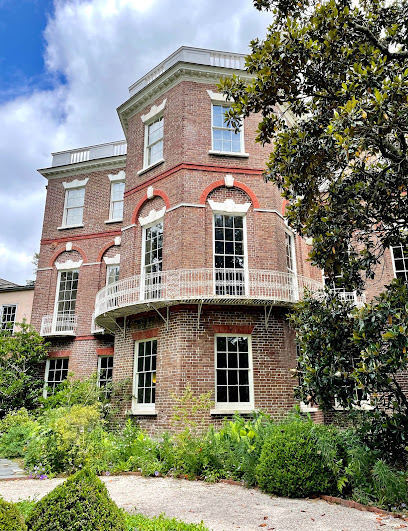
Aiken-Rhett House Museum
Discover the Aiken-Rhett House Museum in Charleston, SC—an authentic glimpse into antebellum life, history, and architecture.
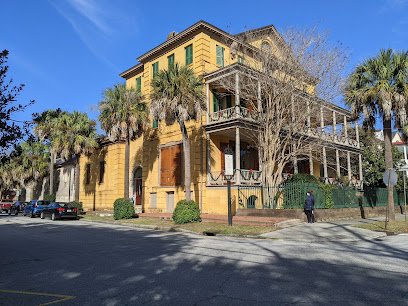
United States Custom House
Explore the United States Custom House, a remarkable historical landmark in Charleston, SC, showcasing stunning neoclassical architecture and rich maritime history.
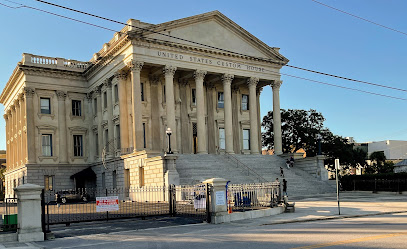
Simmons-Edwards House
Uncover the historical elegance of Simmons-Edwards House, a must-see landmark in Charleston's vibrant South of Broad neighborhood.
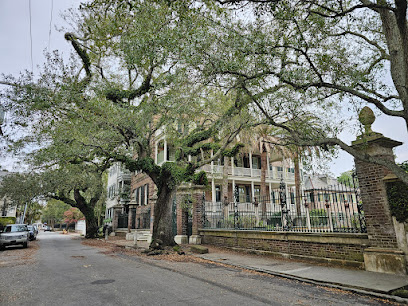
Secessionville Historic District
Discover the serene beauty and rich Civil War history of Secessionville Historic District in Charleston, South Carolina – a true treasure for history lovers.
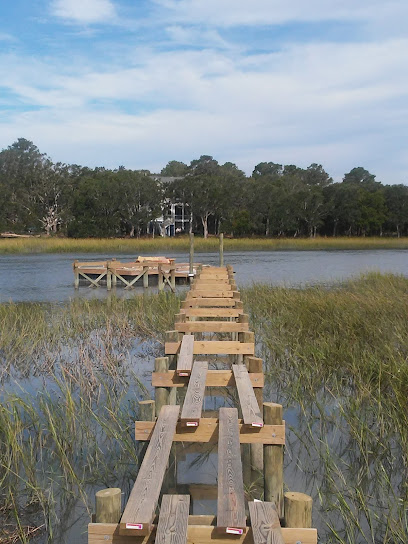
The Walled City of Charles Town
Discover the Walled City of Charles Town, a historical landmark in Charleston that reveals the rich tapestry of America's early colonial life.
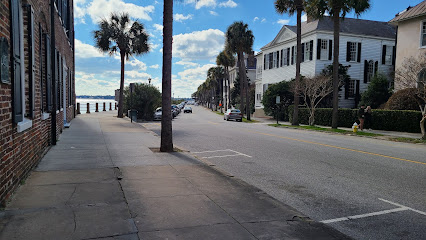
Robert Brewton House
Discover the historic Robert Brewton House, a stunning landmark showcasing Charleston's architectural beauty and rich heritage in the heart of the city.
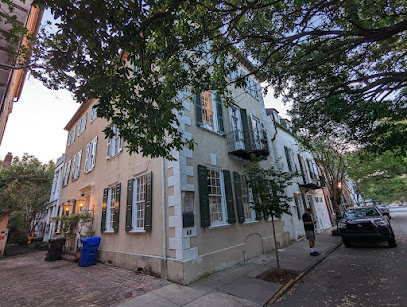
Colonel John Stuart House
Explore the Colonel John Stuart House, a stunning historical landmark in Charleston, SC, and experience the charm of Southern architecture and rich history.
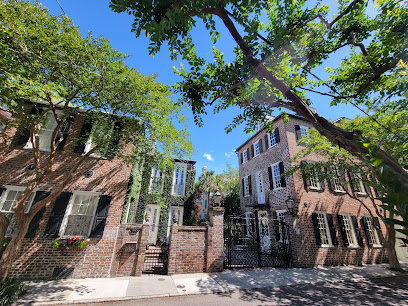
The Gate Temple
Explore the beauty and history of The Gate Temple, a serene landmark in Charleston, SC, reflecting the city’s rich architectural heritage.
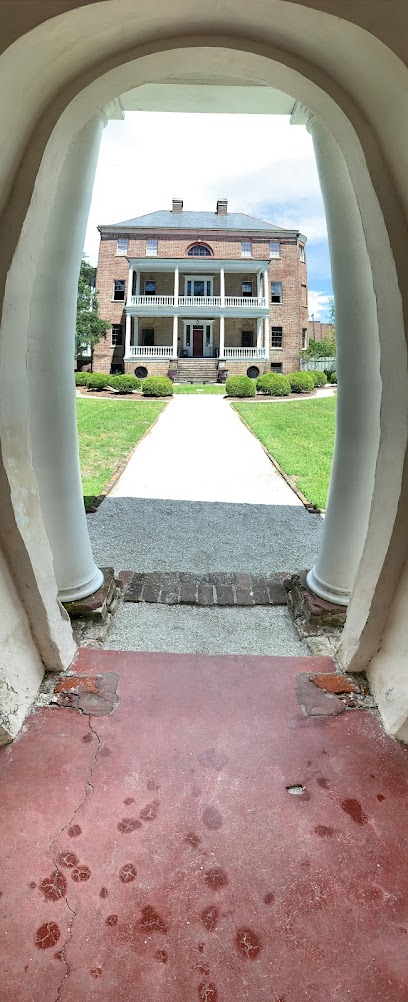
Unmissable attractions to see
White Point Garden
Experience the serene beauty and historical significance of White Point Garden in Charleston, a perfect retreat for tourists and nature lovers.
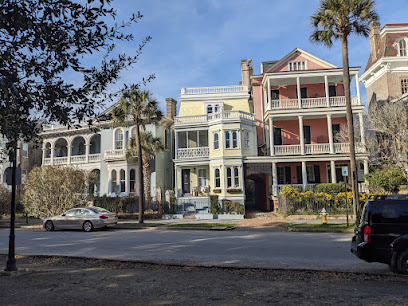
Nathaniel Russell House
Discover the grandeur of 18th-century Charleston at the Nathaniel Russell House, a historic treasure showcasing exquisite architecture and rich history.
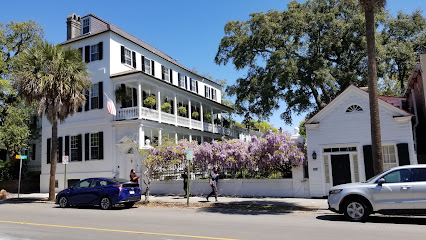
Edmondston-Alston House
Explore the Edmondston-Alston House, a historical landmark in Charleston showcasing Southern heritage, stunning architecture, and rich local history.
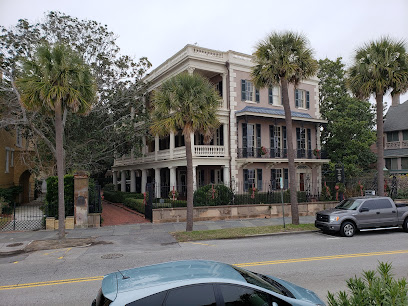
The Walled City of Charles Town
Explore the Walled City of Charles Town, a historical landmark showcasing the rich heritage and vibrant culture of Charleston, South Carolina.
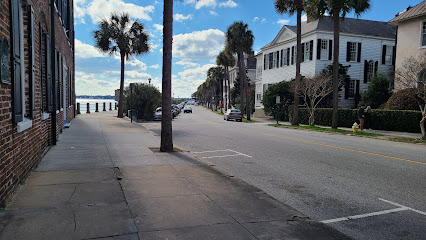
Essential places to dine
Halls Chophouse
Discover unparalleled steakhouse excellence at Halls Chophouse in Charleston - where fine dining meets Southern hospitality.
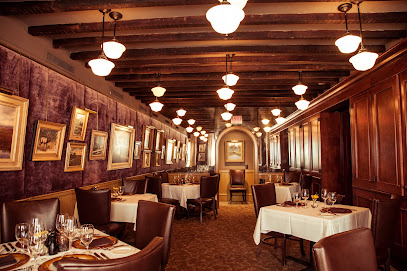
Poogan's Porch
Discover authentic Southern cuisine at Poogan's Porch - where every meal tells a story of tradition and flavor.
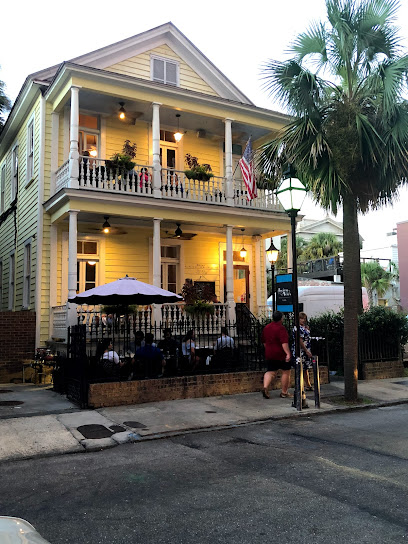
Toast! All Day
Experience the vibrant flavors of Charleston at Toast! All Day – where American breakfast meets Southern charm.
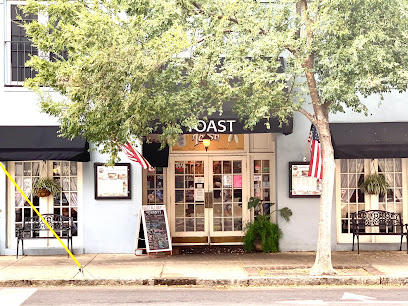
Husk
Experience modern Southern cuisine at Husk, where locally sourced ingredients meet innovative culinary techniques in an inviting Charleston setting.
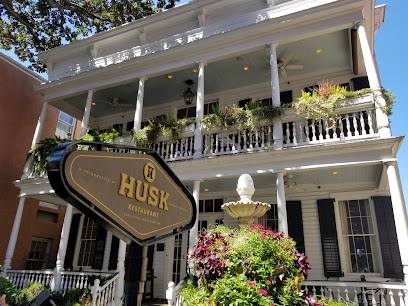
High Cotton Charleston Restaurant
Experience exquisite Southern cuisine and fresh seafood at High Cotton Charleston, where tradition meets elegance in every dish.
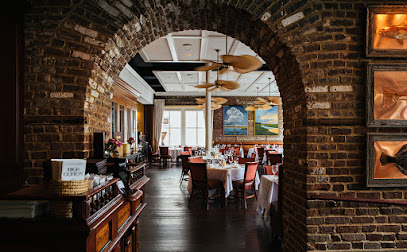
Slightly North of Broad Restaurant
Experience exquisite Southern cuisine at Slightly North of Broad Restaurant in Charleston’s historic French Quarter.
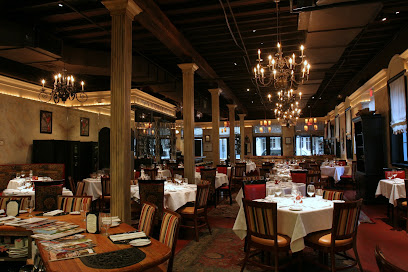
Eli's Table
Experience fine dining at Eli's Table in Charleston - where Southern flavors meet culinary artistry for an unforgettable meal.
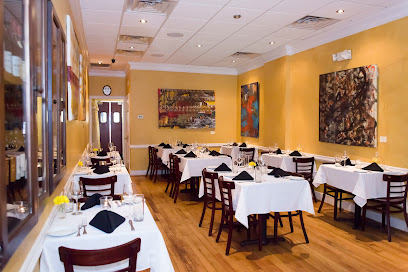
Amen Street Fish & Raw Bar
Dive into Charleston's vibrant seafood scene at Amen Street Fish & Raw Bar, where fresh flavors and Southern hospitality await you.
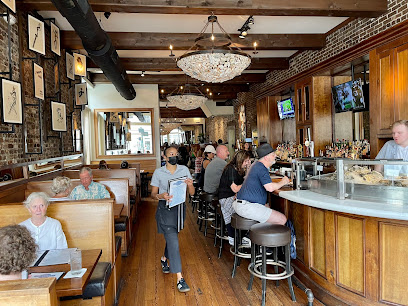
Peninsula Grill
Discover exquisite American cuisine at Peninsula Grill, Charleston's finest dining destination renowned for its elegant atmosphere and exceptional flavors.
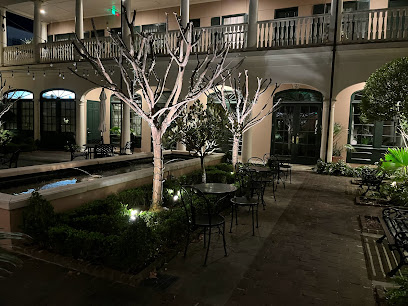
Muse Restaurant & Wine Bar
Indulge in exquisite Mediterranean cuisine at Muse Restaurant & Wine Bar in Charleston - where culinary artistry meets exceptional hospitality.
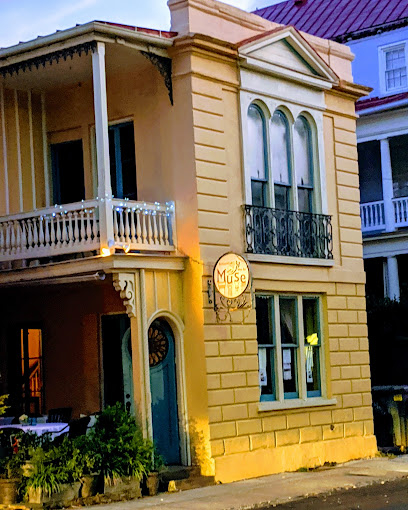
Markets, malls and hidden boutiques
Savannah Bee Company
Discover the sweet side of Charleston at Savannah Bee Company, where artisanal honey and unique gifts await every visitor.
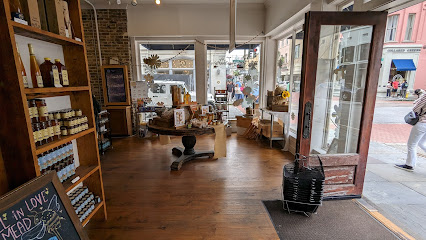
My Sister's Cottage
Explore My Sister's Cottage, a charming gift shop in Charleston offering unique fashion accessories and home goods that reflect southern charm.
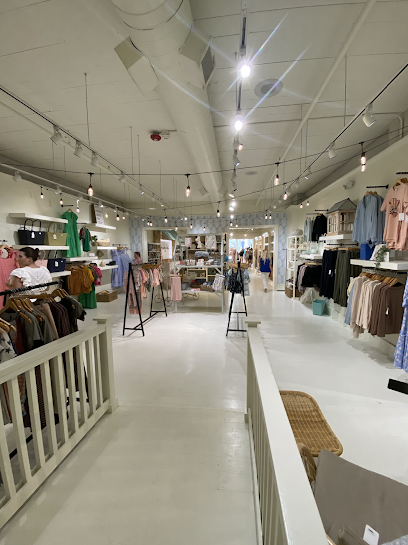
The Hidden Countship: Italian Boutique for Fine Living
Discover a treasure trove of elegant gifts, clothing, and jewelry at The Hidden Countship in Charleston, where fine living meets unique style.
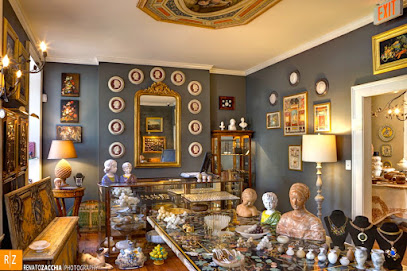
N’fes Handcrafted leater & Gift Market
Explore N’fes Handcrafted Leather & Gift Market in Charleston for unique artisanal gifts, handcrafted leather goods, and a cozy coffee experience.
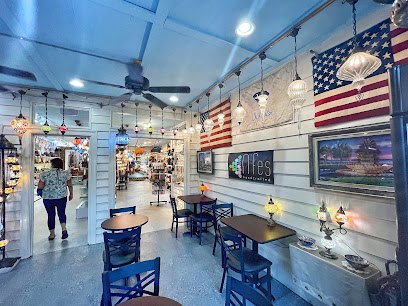
Noddy Charleston
Discover unique gifts and charming home goods at Noddy Charleston, your go-to gift shop in the heart of South Carolina’s historic city.
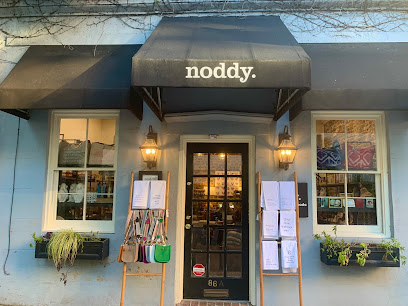
Best Gift Idea Ever
Explore Best Gift Idea Ever in Charleston: a treasure trove of local art, custom apparel, and unique souvenirs that embody the spirit of the city.
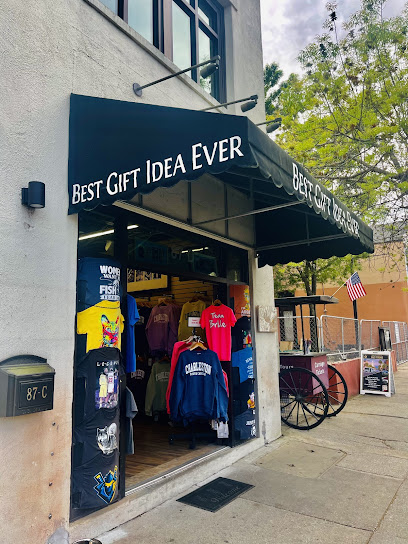
The Boutique Charleston
Discover unique gifts and local artistry at The Boutique Charleston, your go-to destination for one-of-a-kind treasures and bridal essentials.
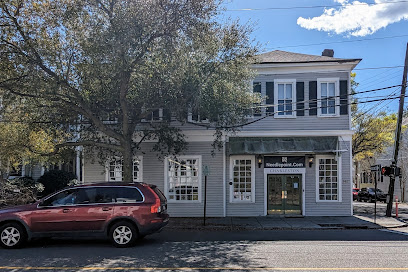
Laurel & Lawton
Discover unique handcrafted gifts that celebrate Southern charm at Laurel & Lawton in historic Charleston.
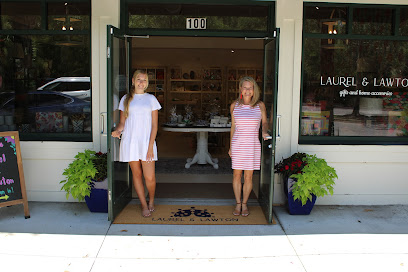
House of Sage
Discover unique fashion and home goods at House of Sage, a charming boutique in the heart of Charleston, SC, celebrating local artistry and style.
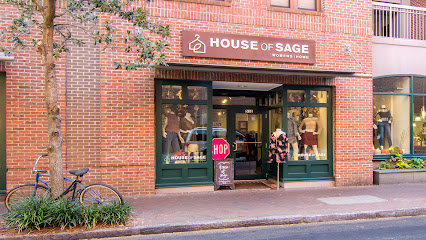
Gasp
Explore Gasp in Charleston for a unique selection of gifts and local artisan creations that capture the spirit of this historic city.

Essential bars & hidden hideouts
The Griffon
Experience the heart of Charleston at The Griffon, a historic American pub offering delicious food and a vibrant atmosphere in the French Quarter.
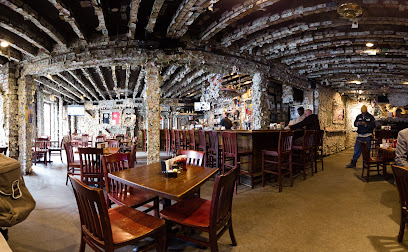
Blind Tiger Pub
Experience the charm and vibrancy of Charleston at Blind Tiger Pub, a historic bar perfect for great food, drinks, and live music.
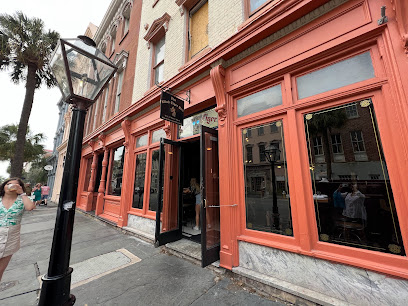
Prohibition
Experience the charm of Charleston at Prohibition, a lively cocktail bar with live music, exceptional drinks, and a unique vintage atmosphere.
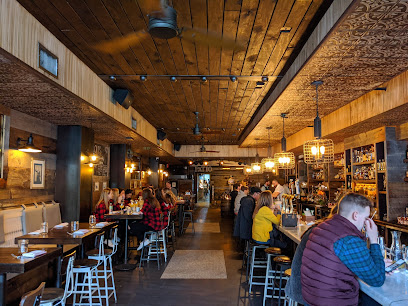
Recovery Room Tavern
Discover the charm of Recovery Room Tavern, a top-rated bar in Charleston offering delicious food, local brews, and a lively atmosphere.
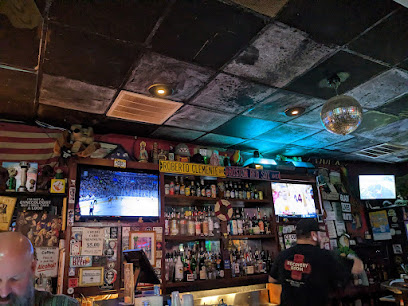
The Gin Joint
Experience Charleston's cocktail culture at The Gin Joint, where tradition meets innovation in a cozy French Quarter setting.
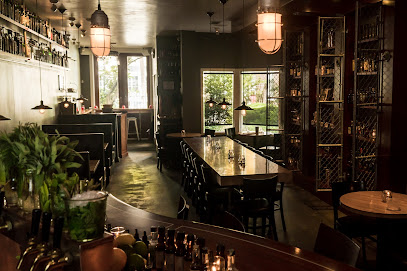
Burns Alley Tavern
Experience the vibrant nightlife and local charm at Burns Alley Tavern, a beloved bar in the heart of historic Charleston, South Carolina.
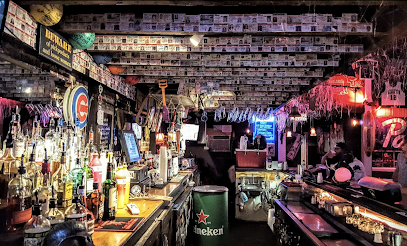
Pour Taproom: Charleston
Discover Pour Taproom in Charleston, a vibrant beer garden with a diverse selection of craft brews and a unique self-pour experience.
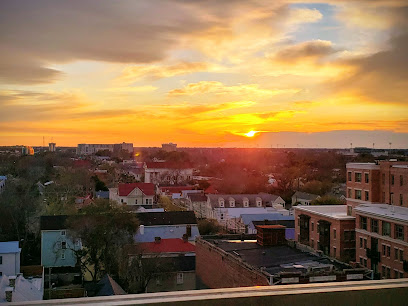
Big John's Tavern
Discover the charm of Big John's Tavern, a popular bar and restaurant in Charleston, offering a taste of local culture with delicious food and drinks.
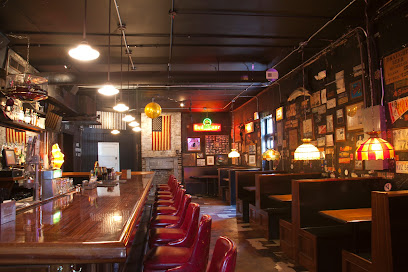
Last Saint
Experience Charleston's vibrant nightlife at Last Saint, a cocktail bar where mixology meets ambiance in a stylish setting.
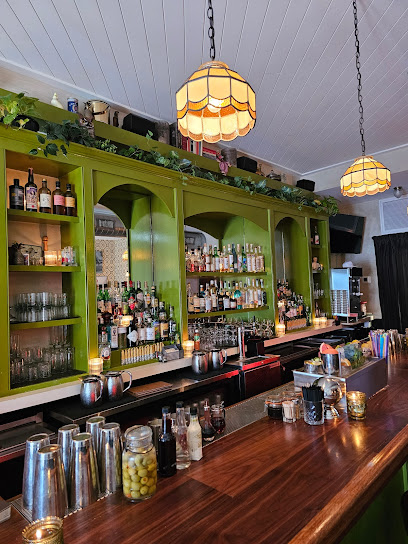
The Bar at The Spectator
Experience the elegance of The Bar at The Spectator, where unique cocktails and exceptional service create a Gatsby-inspired escape in Charleston's French Quarter.
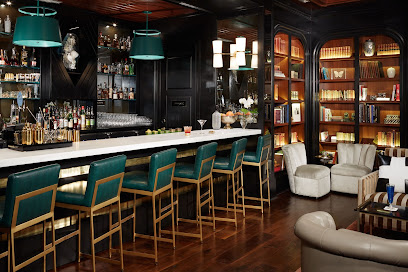
Local Phrases
-
- HelloHowdy
[hah-dee] - GoodbyeFarewell
[fair-well] - YesYessir
[yes-sir] - NoNah
[nah] - Please/You're welcomePlease/You're welcome
[Please/You're welcome] - Thank youMuch obliged
[muhch uh-blahy-jd] - Excuse me/SorryPardon me
[pahr-dn mee] - How are you?How y'all doin'?
[hau yall doo-in] - Fine. And you?Fine. And y'all?
[fain. and yall] - Do you speak English?Ya talk English?
[ya tahk ing-glish] - I don't understandI don't reckon
[ai dohnt rehk-uhn]
- HelloHowdy
-
- I'd like to see the menu, pleaseI'd like to see the menu, please
[I'd like to see the menu, please] - I don't eat meatI don't eat meat
[I don't eat meat] - Cheers!Cheers!
[Cheers!] - I would like to pay, pleaseI would like to pay, please
[I would like to pay, please]
- I'd like to see the menu, pleaseI'd like to see the menu, please
-
- Help!Help!
[Help!] - Go away!Git!
[Git!] - Call the Police!Call the Sheriff!
[Call the Sheriff!] - Call a doctor!Call the doc!
[Call the doc!] - I'm lostI'm lost
[I'm lost] - I'm illI'm ailin'
[I'm ailin']
- Help!Help!
-
- I'd like to buy...I reckon I'll buy...
[ai rehk-uhn ayl bai] - I'm just lookingI'm just lookin'
[ai'm just look-in] - How much is it?How much is that?
[hau muhch is that] - That's too expensiveThat's too pricey
[That's too pricey] - Can you lower the price?Can you do it cheaper?
[Can you do it cheaper?]
- I'd like to buy...I reckon I'll buy...
-
- What time is it?What time is it?
[What time is it?] - It's one o'clockIt's one o'clock
[It's one o'clock] - Half past (10)Half past (10)
[Half past (10)] - MorningMornin'
[Mornin'] - AfternoonAfternoon
[Afternoon] - EveningEvenin'
[Evenin'] - YesterdayYest'day
[Yest'day] - TodayToday
[Today] - TomorrowTomorrah
[Tomorrah] - 1One
[One] - 2Two
[Two] - 3Three
[Three] - 4Four
[Four] - 5Five
[Five] - 6Six
[Six] - 7Seven
[Seven] - 8Eight
[Eight] - 9Nine
[Nine] - 10Ten
[Ten]
- What time is it?What time is it?
-
- Where's a/the...?Where's a/the...?
[Where's a/the...?] - What's the address?What's the address?
[What's the address?] - Can you show me (on the map)?Can you show me (on the map)?
[Can you show me (on the map)?] - When's the next (bus)?When's the next (bus)?
[When's the next (bus)?] - A ticket (to ....)A ticket (to ....)
[A ticket (to ....)]
- Where's a/the...?Where's a/the...?
History of Historic District
-
Charleston's Historic District was established in 1670 when the area was first settled by English colonists. Originally named Charles Town in honor of King Charles II, the city quickly became a hub of trade and culture in the southern colonies. The layout of the city, with its narrow streets and public squares, reflects the early grid planning typical of colonial towns, emphasizing community and commerce.
-
During the American Revolution, Charleston was a focal point of conflict and strategy. The city saw significant battles, including the Siege of Charleston in 1780, which resulted in the British capturing the city. The Historic District is marked by various sites, such as the Old Exchange and Provost Dungeon, which played crucial roles during this tumultuous period, serving as a military headquarters and prison.
-
In the decades leading up to the Civil War, Charleston's Historic District flourished as a center of wealth and culture, driven largely by the plantation economy. The city became known for its grand mansions and historic churches, many of which still stand today. The architecture from this period reflects the wealth generated from cotton and rice, as well as the reliance on enslaved labor.
-
Charleston's Historic District was significantly impacted by the Civil War, being the site where the first shots were fired at Fort Sumter in 1861. The war devastated the city economically and socially. During Reconstruction, the city underwent significant changes as the federal government sought to rebuild and redefine Southern society, leading to both conflict and progress as African Americans fought for their rights.
-
The late 20th century saw a concerted effort to preserve Charleston's Historic District as a valuable cultural and historical asset. Advocacy groups and local government initiatives worked together to restore and maintain historic buildings, leading to the establishment of the Charleston Historic District as a National Historic Landmark in 1960. These efforts have ensured that the unique architectural and historical heritage of Charleston remains intact for future generations.
Historic District Essentials
-
The Historic District of Charleston is easily accessible from various neighborhoods within the city. If you are coming from the airport, the Charleston International Airport (CHS) is approximately 12 miles away. You can take a taxi or rideshare service, which usually takes about 20-30 minutes. From nearby neighborhoods like West Ashley or Mount Pleasant, you can reach the Historic District via the US-17 bridge or take the local bus service operated by CARTA. For those staying in Folly Beach, expect a 30-minute drive or bus ride to reach the Historic District.
-
The Historic District is highly walkable, with most attractions within a short walking distance of each other. For longer distances, consider using the local bike-sharing program, Holy Spokes, which has several stations throughout the area. The CARTA bus system also provides service within the Historic District, and taxis or rideshare options are readily available. If you're interested in a guided tour, numerous companies offer carriage rides, which provide a unique way to see the area’s historic sites.
-
Charleston is generally safe for tourists, but it's wise to remain vigilant. Areas like East Side and parts of the North Charleston region can have higher crime rates, particularly involving property crimes. Avoid walking alone late at night in less populated areas, and always keep your belongings secure. Stick to well-lit streets and populated areas, especially after dark.
-
In case of an emergency, dial 911 for police, fire, or medical assistance. The nearest hospital is MUSC Health, located just outside the Historic District. Keep a list of local emergency contacts handy, including the address of your accommodation. It’s also recommended to have travel insurance that covers medical emergencies.
-
Fashion: Do wear comfortable shoes for walking and dress appropriately for the weather. Don't wear overly casual attire, especially when dining in upscale restaurants. Religion: Do respect local customs, especially when visiting historic churches. Cover shoulders and knees. Public Transport: Do be courteous to fellow passengers. Don't use your phone loudly on public transport. Greetings: Do greet locals with a friendly smile or nod. A handshake is appropriate. Eating & Drinking: Do try local cuisine, especially seafood. Don't eat while walking, as it can be seen as disrespectful in certain areas.
-
To experience the Historic District like a local, explore the lesser-known streets such as Tradd or Church Street, where you can find hidden gardens and historic homes. Visit local markets like the Charleston City Market for unique souvenirs. Attend local festivals or events, especially during the spring and fall, to immerse yourself in the local culture. Try to engage with residents; many are happy to share stories and recommendations that might not be found in guidebooks.
Nearby Cities to Historic District
-
Things To Do in North Charleston
-
Things To Do in Summerville
-
Things To Do in Beaufort
-
Things To Do in Hilton Head Island
-
Things To Do in Myrtle Beach
-
Things To Do in Aiken
-
Things To Do in Rock Hill
-
Things To Do in Fort Mill
-
Things To Do in Fayetteville
-
Things To Do in Charlotte
-
Things To Do in Spartanburg
-
Things To Do in Mauldin
-
Things To Do in Anderson
-
Things To Do in Jacksonville
-
Things To Do in Greer













